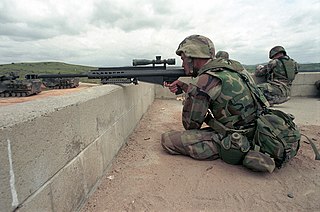
By Anthony Marsella
Here is a straightforward list of actions and policies to promote peace amidst the madness of pursuing destruction and war for the apparent rewards of empire, economic, and delight in immorality and illegality.
Productive Foreign Policy and Domestic Options, Choices, Alternatives: Paths to Peace and Social Justice
- Acknowledge the national security of the USA is best secured by pursuing and modeling peace, not by engaging in constant accusations and enemification of nations, cultures, religions, and people;
- Address and resolve domestic inequities and inequalities in wealth, power, and position. Create new policies for equity and opportunity;
- Address and limit monopolies (e.g., Big Agro, Big Pharm, Big Health, Big Transportation, Big Education, etc.) because these monopolies concentrate power, and they become impossible to control – “Too big to fail.”
- Address the reality of USA decline in reputation and image by stopping the pursuit of a global empire;
- Adopt a “Never Again” policy and practices for all countries, by all countries. “Never again” must not be limited to a single group or nation;
- Apologize and ask for forgiveness in a public forum. Express intention to no longer pursue violence and war as national policy;
- “Be the nation you want others to be;”
- Build museums, monuments, holidays, and tributes to peace. Stop glorification of war;
- Cease all vilification of Muslims and Muslim nations;
- Condemn and prosecute apartheid;
- Choose and support non-violent and non-killing protests and social changes;
- Circulate the Universal Declaration of Human Rights (UDHR) to all schools and governments as an accepted guide;
- Close Guantanamo, and other “war on terrorism” prisons, camps, and rendition sites;
- Destroy all weapons of mass destruction Nuclear, Toxic, Gas, etc);
- Develop Department of Peace as an official standing cabinet office separate from State or Defense Departments;
- Develop a metric to assess and prosecute USA international abuses and crimes;
- Develop metrics to assess USA contributions to advancing humanity and the natural sectors. Assess metrics constantly;
- Develop, implement, and empower UN conflict resolution office;
- Develop ethic/ethos of global interdependency;
- Diplomacy dialogue, rather than military force or violent interventions;
- Educate women and children, and re-educate men;
- Empower UN, and improve its functions and roles;
- End corporate political election influence, control, and dominance;
- End global surveillance and restore privacy and constitutional rights;
- Increase governmental transparency and accountability;
- International loan forgiveness;
- Join and cooperate with international courts;
- Limit “imperial” president powers as reflected in abuses of signing statements;
- Limit lobbyist influence and control of public offices;
- Limit Presidential terms of office to six years;
- Limit Congressional terms of office to eight years. End seniority system of power;
- Limit military-industrial-congressional- education complex powers;
- Non-Contingent humanitarian aid and assistance, rather than contingent aid;
- Practice humility, apology, and forgiveness;
- Prosecute American war and military crimes to national and international laws;
- Public apology for violent and destructive national and international policies and actions (e.g. NATO);
- Reconsider political and economic treaties that isolate and marginalize nations (e.g., TPP) and seek hegemonic control (e.g., Russia, China);
- Resist military solutions to conflicts and disagreements – choose diplomacy;
- Restore balance of power across executive, congressional, and justice sectors. Dominance of the executive branch under the auspices of protecting national security has been abused, and has proven a failure and crime;
- Restorative justice to victims;
- Restrict central banking model of financial control over nations’ debt;
- Review immediate and long-term consequences of DHS/NSA Abuses;
- Stop “for profit” prisons, and their associated judicial corruption;
- Speak truth, do not distort or exaggerate, practice transparency;,
- Use “Justice” as an arbiter for decisions;
From: A.J.Marsella (2014).Two Paths in the Wood: “Choice” of Life or War. First published in Transcend, 27 October 2014. TRANSCEND MEMBER
Anthony J. Marsella, Ph.D., a member of the TRANSCEND Network, is a past president of Psychologists for Social Responsibility, emeritus professor of psychology at the University of Hawaii, and past director of the World Health Organization Psychiatric Research Center in Honolulu. He is known nationally and internationally as a pioneer figure in the study of culture and psychopathology who challenged the ethnocentrism and racial biases of many assumptions, theories, and practices in psychology and psychiatry. In more recent years, he has been writing and lecturing on peace and social justice. He has published 15 edited books, and more than 250 articles, chapters, book reviews, and popular pieces. He can be reached at marsella@hawaii.edu.



